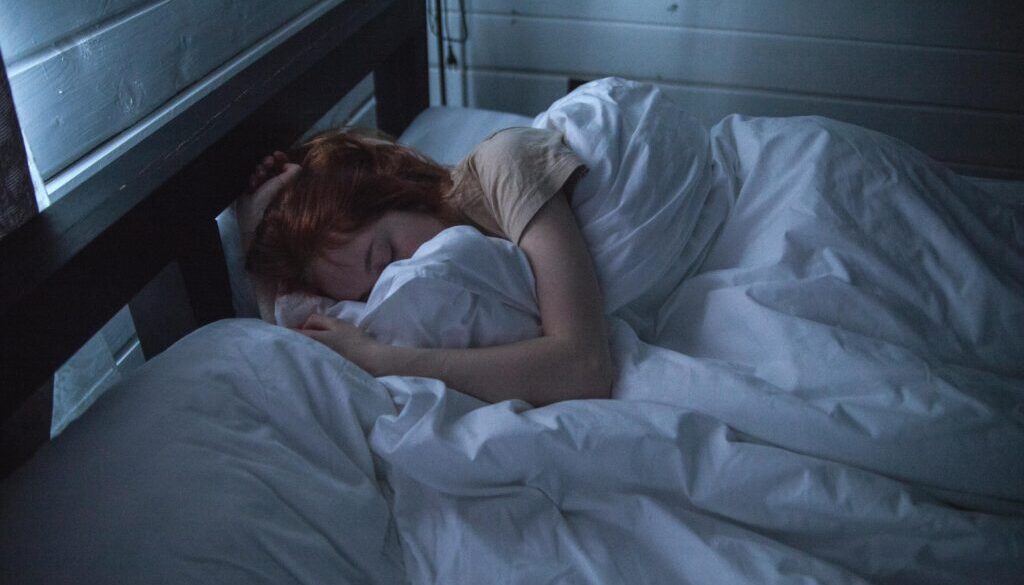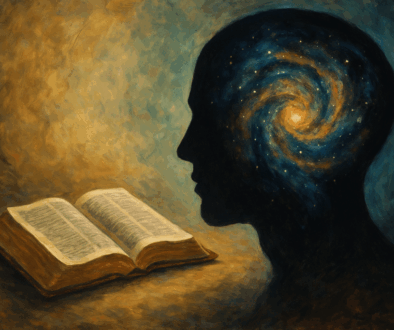Reclaiming Your Sleep: A Guide to Better Rest and Deeper Recovery
“May I slide in a little detail, I was, and I am immensely tired, and I always lose perspective when I am tired.”
—Old Journal Entry
Sleep is more than just closing your eyes—it’s the cornerstone of your mental, emotional, and physical health. Yet in our modern world, where distractions and artificial lights are everywhere, restful sleep often eludes us. Instead of drifting into a peaceful night, we scroll on our phones, binge-watch shows, or toss and turn with anxious thoughts.
“Sleep is the Swiss Army knife of health. When sleep is deficient, there is sickness and disease. And when sleep is abundant, there is vitality and health.”
—Matthew Walker (Sleep Scientist, Author of Why We Sleep)
If you’re here, you might be feeling the struggle. Perhaps you’ve tried everything: supplements, podcasts, apps, meditation, yoga—you name it. Maybe you’ve tracked your sleep and noticed terrible results, or maybe you just wake up feeling groggy no matter what. I’ve been there too, and I know how helpless it can feel.
But hope isn’t lost. With patience, curiosity, and a willingness to experiment, you can reclaim your sleep and create the conditions for true restoration. This post is both a personal journey—because I’ve wrestled with these issues—and a practical guide. My aim is to help you approach sleep as something sacred, a gift from God, rather than a random occurrence at the end of each busy day.
Scroll to the end for my top 5 steps to improve sleep and a comprehensive list of tools and resources.
Why Sleep Matters
Sleep is often overlooked, but once you understand its importance, you’ll see why it’s worth prioritizing. Good sleep helps:
- Memory and Focus: Lack of deep, non-REM sleep impairs your ability to learn, remember, and stay alert.
- Mood Regulation: Poor sleep can exacerbate anxiety and depression.
- Immune Function: Sleep strengthens your body’s defenses.
- Long-Term Brain Health: Chronic poor sleep is linked to cognitive decline, Alzheimer’s, and other neurodegenerative diseases.
Deep sleep is especially vital. It’s during this phase that your brain clears away toxins, consolidates memories, and restores itself. Without it, life feels like running on an empty tank.
My Sleep Journey
I used to think sleep was passive—something that just happens when you lie down. Then anxiety hit me hard, and I lost my ability to sleep entirely. I remember the night it exploded and how helpless I felt.
For years, I woke up more tired than everyone else I knew. My Apple Watch confirmed my fears: my deep sleep averaged just 15–20 minutes a night. I worried this lack of restoration would cause long-term damage—my memory suffered, I felt anxious, and my blood felt like it was pumping with too much force. Life didn’t feel worth living in that state.
I tried everything:
- Magnesium (Glycinate and Threonate), L-Theanine, Ashwagandha, Reishi, Tryptophan, Taurine, Omega-3, and more supplements.
- Tools like lavender oil, nasal dilators, sleep masks, and white noise apps.
- Practices like yoga, meditation, and breathwork—yoga helped the most.
Still, I felt like I was missing something. Was it inflammation? Autism-spectrum sensitivities (which run in my family)? Sleep apnea? Eventually, I booked a sleep study to gather real data.
Building Better Sleep: Foundational Steps
- Sleep Hygiene: Creating the Right Environment
- Screen Curfew: Avoid screens an hour before bed. Blue light suppresses melatonin, the sleep hormone.
- Cool and Dark Room: Ideal temperature is 18°C (65°F). Use blackout curtains or a sleep mask.
- Quiet Ambience: Try white noise, pink noise, or calming soundscapes.
- Regular Routine: Go to bed and wake up at the same times every day—even on weekends.
“In peace I will lie down and sleep, for You alone, Lord, make me dwell in safety.”
—Psalm 4:8
- Morning Sunlight and Timing
Get daylight within an hour of waking. Natural light anchors your circadian rhythm, helping you feel sleepy at night and alert during the day.
- Limit Caffeine and Alcohol
- No Caffeine After Noon: Caffeine stays in your system for hours, disrupting your ability to fall asleep.
- Cut Alcohol: Even small amounts disrupt deep sleep.
- Gentle Exercise
Regular exercise improves sleep quality. A simple walk during the day can make a difference. Aim for earlier activity to avoid overstimulation before bed.
- Nutrition for Sleep
- Focus on whole, gut-friendly foods: lean proteins, healthy fats, colorful vegetables, and fiber.
- Limit sugar and processed foods, which spike blood sugar and disrupt sleep.
- Probiotics and Omega-3s can help regulate mood and serotonin production, improving sleep indirectly.
“Aligning your sleep with your circadian rhythm can give you back the energy, focus, and vitality you’ve been missing.”
—Dr. Satchin Panda (Circadian Rhythm Researcher, Author of The Circadian Code).
Addressing Root Causes
If you’ve mastered the basics and still struggle, it’s worth looking deeper:
- Stress and Anxiety: Journaling, prayer, yoga, or therapy can calm your nervous system.
- Health Conditions: Get a sleep study to rule out sleep apnea, restless legs, or hormonal imbalances.
- Neurodiversity: If you suspect autism or ADHD, experiment with sensory-friendly sleep tools like weighted blankets or noise apps.
Supplements and Sleep Tools
(Consult your healthcare provider first!)
- Minerals and Amino Acids: Magnesium (Glycinate, Threonate), L-Theanine, Tryptophan, Glycine, Taurine.
- Adaptogens and Herbs: Ashwagandha, Reishi Mushroom, Chamomile, Valerian Root, Lavender, Lemon Balm.
- Hormone Support: Melatonin (low dose), 5-HTP, GABA, Phosphatidylserine (PS).
- Healthy Fats: Omega-3s, Evening Primrose Oil.
- Gut Health: Probiotics and Prebiotics (e.g., Inulin).
Rethinking Sleep as Sacred
Sleep isn’t wasted time—it’s a holy rhythm, a gift from God that restores your body and soul.
“It is in vain that you rise up early and go late to rest… for He gives His beloved sleep.”
—Psalm 127:2
Shift your evenings toward stillness: prayer, gratitude journaling, Scripture reading, or simply breathing deeply. Let go of the world’s pace, and embrace rest as God intended.
5 Key Steps to Reclaim Your Sleep
- Set a Sleep Routine: Go to bed and wake up at the same time every day.
- Get Morning Sunlight: Anchor your circadian rhythm within an hour of waking.
- Wind Down Before Bed: Avoid screens; pray, stretch, or read.
- Limit Caffeine and Alcohol: No caffeine after noon, and cut alcohol completely.
- Move Your Body Daily: Gentle exercise like walking or yoga improves sleep quality.
Sleep Resources: Books, Podcasts, and Tools
Books
- Why We Sleep by Matthew Walker
- Sleep Smarter by Shawn Stevenson
- The Sleep Solution by W. Chris Winter
- The Circadian Code by Satchin Panda
Podcasts
- Huberman Lab Podcast – Episodes on sleep optimization.
- The Matt Walker Podcast – Practical sleep tips from a sleep scientist.
- Feel Better, Live More with Dr. Rangan Chatterjee.
Apps and Tools
- Calm or Headspace
- White Noise/Pink Noise Apps
- SAD Lamps (e.g., Lumie or Philips Wake-Up Lights)
- Oura Ring or Apple Watch for sleep tracking
Conclusion: Rest as Redemption
Sleep is where you return to wholeness. It’s a time to let go, to trust, and to be renewed.
Reclaim your nights, one small step at a time. With patience and persistence, you’ll find not only better sleep, but a deeper sense of peace, purpose, and restoration.
Psycheverse: “Come to me, all you who are weary and burdened, and I will give you rest.”
—Matthew 11:28




